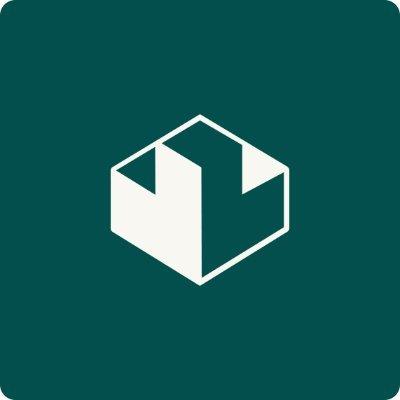Invest in fractional shares of rental properties
Invest in private assets
Investments
$5
Landa's minimum share investment is $5, with personal buy limits set at 10% of income/net worth per property, no limits for entities, and weekly deposits capped at $100,000.
Investments
$10
Fundrise allows a minimum investment of $10 for taxable accounts and $1,000 for IRAs.
Moderate Risk
3/5
Investing in Landa carries risks such as market volatility and potential loss of investment. Despite Landa's measures to legally separate each property series to protect investors' assets, there's no absolute guarantee in bankruptcy scenarios.
Moderate Risk
3/5
Investing with Fundrise involves risks such as limited liquidity, potential modifications to the share repurchase program, market volatility affecting asset values, the possibility of total investment loss, and regulatory changes impacting operations.
Moderate Liquidity
2/5
Landa offers share liquidity through its trading platform, with market hours set from 9:30 am to 5:00 pm EST and a 2% trade fee. Share pricing is flexible, but an active buyer market is not guaranteed.
Minimum Liquidity
1/5
Fundrise offers liquidity through its share repurchase program, allowing investors to redeem shares quarterly with no penalties or costs.
Receive new reviews from Fintorial
Low Return
5.0 %
Landa offers returns through rental income distributions and potential property value appreciation, with additional tax benefits. Returns are influenced by property location, type, and market conditions, shaping overall investment performance.
Low Return
4.81 %
Investors on Fundrise can expect returns through dividends and appreciation, with an average income return of 4.81% over 7 years.
Long-term Investment
10+ years
Landa focuses on long-term property investment, with the potential for indefinite holding periods due to market liquidity or property performance.
Long-term Investment
5+ years
Fundrise is designed for long-term investments, ideally for a period of 5 or more years, due to its focus on strategies aimed at long-term return potential.
Who can invest
United States
U.S. residents over 18 with an SSN can invest with Landa, excluding non-U.S. residents and those in Puerto Rico.
Who can invest
United States
To be eligible to invest with Fundrise, individuals must meet several criteria: they must be at least 18 years old, have permanent residency in the United States, possess a valid U.S. tax ID, and file taxes in the U.S. The platform is open to both accredited and non-accredited investors.
Moderate Volatility
3/5
Real estate values can fluctuate unpredictably, impacting Landa share prices and potentially leading to significant investment losses in volatile markets.
Moderate Volatility
3/5
Assets on the Fundrise platform, such as private real estate and venture capital, typically show lower volatility compared to public stocks and bonds, due to less frequent valuation updates and reduced exposure to daily market swings.
Regulation and audits
SEC Regulated
Landa's "Shares" are SEC-regulated real estate investments with risks, including loss and illiquidity. Resale of Shares is limited to a secondary platform with no guaranteed market, requiring investors to potentially hold shares indefinitely.
Regulation and audits
SEC Regulated
Fundrise is regulated by the SEC and must comply with strict reporting, disclosure, and operational standards. It undergoes regular independent audits to verify financial accuracy, legal compliance, and the effectiveness of its internal controls, ensuring transparency and integrity in its operations for investor protection.
Insurance
No
Without specific details from Landa, it's assumed properties are insured for damage, not for market or fraud risks, with potentially limited coverage.
Insurance
No
Investments on Fundrise, including real estate and alternative assets, are not insured by the FDIC or any other government agency, exposing investors to the risk of loss without insurance protection.
Payouts
Dividends
Landa investors earn through monthly dividends derived from rental income minus property expenses and through potential appreciation by selling shares in a secondary market. However, dividends are not guaranteed, may fluctuate with property performance, and share trading is subject to market availability.
Payouts
Dividends
Dividends are paid quarterly, based on income from portfolio projects, and can be either reinvested or cashed out. Appreciation comes from increases in the value of the investment, reflected in the net asset value (NAV) of shares. Returns start accruing after investment settlement, typically within 5 business days, and can be tracked on the Investor Dashboard.
Withdrawals
Withdraw money from Landa through the app with a 2-5 business day processing time to your bank account.
Withdrawals
To withdraw funds from Fundrise, investors must submit a liquidation request. Liquidations are reviewed quarterly for most funds, with a waiting period for the eFund. No penalty is charged for liquidating shares from the Flagship, Income, or Innovation Funds, but eREIT and eFund shares held for less than five years may incur a penalty. Liquidations are processed on a "First in, first out" basis.
Extra Fees
Yes
Landa charges a 2% fee for share transactions on the secondary market, paid to a third-party broker-dealer without any retention by Landa.
Extra Fees
Yes
Fundrise charges a 0.15% annual advisory fee, a 0.85% management fee for real estate funds, and a 1.85% management fee for the Innovation Fund. Early liquidation of eREIT or eFund shares before 5 years incurs a 1% penalty.
Taxes
Tax Form
Landa provides investors with tax documents such as Forms 1099-B, 1099-DIV, and 1099-MISC by January 31st for reporting share transactions and dividends over $10. Income from Landa investments is taxable, and consulting a tax professional is recommended.
Taxes
Tax Form
Fundrise investors can expect Form 1099-DIV for eREITs or interval funds with distributions over $10, Schedule K-1 for eFund shares, and Form 1099-B for liquidated shares. Tax documents are issued at the end of January for 1099-DIVs and mid-March for K-1s, available on the investor dashboard. Multiple funds in a portfolio may result in receiving multiple tax forms.

